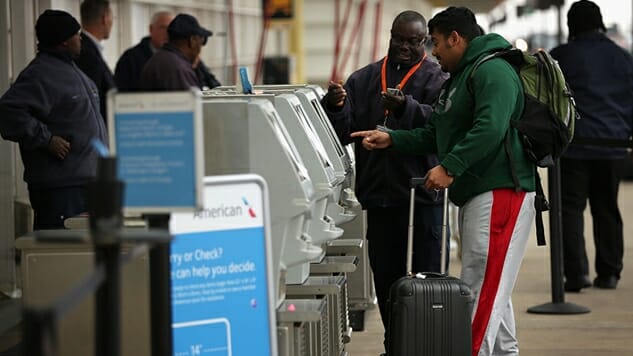9 Words for Business Travelers to Avoid While Venturing Abroad
Photo by Alex Wong/Getty
Native English speakers enjoy lots of perks in life, so it’s no surprise that when traveling abroad to countries where the primary language is not English, most locals even speak some English in an effort to communicate with travelers.
If you’re traveling to a country where the primary spoken language is not English, a quick hack is to learn common words like “hello,” “thank you,” and other useful phrases such as “how are you.” But what about parts of the world where English-speaking travelers feel they have a grasp on the language—places where English is the main language—yet some words are used differently or hold double meanings? This is an especially tricky minefield for business travelers to navigate.
Even in these countries, there’s room for comical situations to arise—which brings me to false cognates and words that simply don’t translate from one part of the English-speaking world to another. These words could get Anglos into a world of trouble and might even wind up costing you the deal you traveled to negotiate. That’s because they sound, and in many cases look alike—yet hold different meanings. Check out these nine words any traveling English speaker should avoid using if they wish to shy away from a series of awkward and unfortunate events that could wind up hurting your bottom line.
1. Pants
I know what you’re thinking. As simple as it sounds, the word in North America just means pants. In other parts of the world, it means something quite different. If you’re heading across the pond and ask for a pair of “pants,” you might just be given a pair of what North Americans call underwear. You should try to avoid using this word in U.K. and Ireland in the context of jeans, as they call pants “trousers.”
2. Dick
Be careful if you’re heading to Germany and traveling with someone named Richard. If they wish to be called “Dick” (the shortened form for the name Richard), there’s room for many awkward moments. This word in German means “fat” or “thick” which can potentially be offensive if you’re yelling to get your friend’s attention and someone else overhears you, assuming you’re talking to them.
3. Fanny
This is not your mother’s fanny pack. In fact, that would just be awkward to say in the U.K., Ireland, Australia, New Zealand or South Africa, where the word holds a vastly different meaning from the bag you wear around your waist to hold your money, passports etc…In these countries, it means “vagina.”